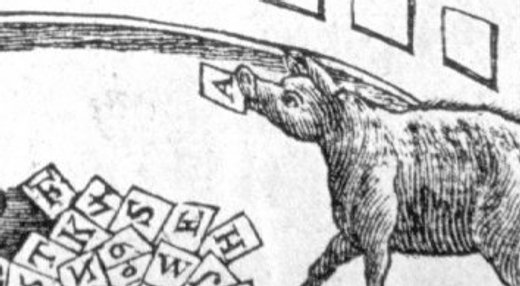- About
- Visiting
- What’s On
- Venue hire
- Catalogues
- Collections
- 101 Treasures of Chetham’s
- Digital Resources
- The Flowers of Histories
- A Book of Hours from France
- The Manchester Scrapbook
- Thomas Barritt of Manchester
- Art Treasures Examiner of 1857
- Manchester Association for Constitutional Order
- The North Western Museum of Science and Industry: Some Reminiscences by Richard Hills
- Criminal Manchester
- The Cup of Destiny
- Athenaeum Souvenir
- Middle English Manuscripts
- Manchester and Liverpool of Today
- Hollingworth’s Mancuniensis
- Memoir of Cecil Wray
- William Seward’s Diary
- The Anti-Monopolist
- Fishwick’s History of Rochdale
- Knyvett’s Defence of this Realm
- Tractatus de Nigromantia
- Axon Ballads
- Printed Books & Ephemera
- Archives & Manuscripts
- Prints and Photographs
- Blog
- Support us
Scrapbooks

The Library holds about 150 volumes of scrapbooks, most of which were compiled by local historians and antiquarians for their own personal use. Occasionally they came into the Library as part of bequests of printed books and manuscripts but for the most part their provenance is not known.
At Chetham’s there are only a few albums formed of the chromolithograph scraps specifically produced in the nineteenth century for pasting into scrap albums. Instead, the staple ingredient of the Library’s scrapbooks is the clipping, cut out of the newspapers or magazines of the day, interspersed with printed ephemera and illustrations.
Records for most of the scrapbooks may be found in the Library’s online Catalogue, including a brief general description of the contents. Additionally, each item in the Halliwell-Phillipps and Cambrics scrapbooks has been catalogued separately, while individual letterpress-printed pieces in the other collections have also been catalogued, including William Robert Hay’s significant Peterloo ephemera.
Subject and genre terms have been linked to each record so that the researcher may find this material through several different access points. ‘Broadsides’, ‘ballads’, ‘proclamations’, and ‘advertisements’, to name but a few, are searchable terms. This means that it is possible to locate in the catalogue records of all the theatre programmes, or all of the advertisements in the Library’s holdings. Specific subject searches are also possible: ‘Peterloo’ will not only bring up all the Library’s secondary source material on the topics, the books and journals, but now will also find ‘The happy workman’s song’ (Hay portfolio 126) an important bit of anti-radical propaganda.
The scrapbooks fall into two basic categories: scrapbooks of images and scrapbooks of text. Below are some of the most important:
The Manchester Scrapbook
Maps, plans, views, portraits and broadsides of places and persons in Manchester and its vicinity, presented to the Library in 1838 by its compiler, Francis Egerton, 1st Earl of Ellesmere, and now comprises over three hundred and fifty items. It includes a series of watercolours and pen and ink sketches by the Manchester antiquarian and saddle-maker Thomas Barritt, dating from the end of the eighteenth century and represents an attempt to record the changes taking place within the town at that time.
Robert Langton Scrapbook
Over 400 proofs by the artist and wood engraver Robert Langton, presented to the Library by the artist in 1885. Langton (1825-1900) began work in Manchester in 1849 as a wood engraver specialising in archaeological, architectural and historical engravings. Langton illustrated or contributed illustrations to many important local works, including Richard Wright Procter’s Barber’s Shop and Manchester Streets, Abram’s History of Blackburn, Croston’s Historical Memorials of the Church in Prestwich and J. E. Bailey’s Palatine Notebook. In his day, Langton was widely regarded in this area as the successor to Bewick.
The Cambrics Scrapbook
One of the most important collections of broadsides, broadsheets, and single-sheet pamphlets concerning Manchester and its environs within the Library. Its 254 broadsides range widely from light-hearted theatre posters and entertainment handbills to discussions of some the most serious political issues facing England at the end of the eighteenth century. The earliest piece dates from 1739 and the latest 1848; over two-thirds of them, especially the more political broadsheets, come from the years 1789-1800, the turbulent decade of the French Revolution, when Manchester’s populace was also stirred by the spirit of Republicanism.
The Scrapbooks of William Robert Hay
18 volumes of clippings interspersed with a selection of broadsides including political satire, poetry, advertisements, lotteries and other items of a transitory nature. Many of these are unusual examples of provincial printing, with some emphasis on items printed in Manchester or its environs. Hay, (1761-1839), was a clerical magistrate and stipendiary chairman of the Salford Quarter Sessions acting at Peterloo. The scrapbooks form part of a larger Hay collection in the Library which includes, in addition to the scrapbooks, two boxes of sermons, a notebook containing genealogical notes on the Hay family, and forty six memorandum or commonplace books, and some other miscellaneous material including a small amount of correspondence. The scrapbooks are complemented by the commonplace books into which Hay has copied or summarized anecdotes, political, legal and theological extracts, poems and news reports.
